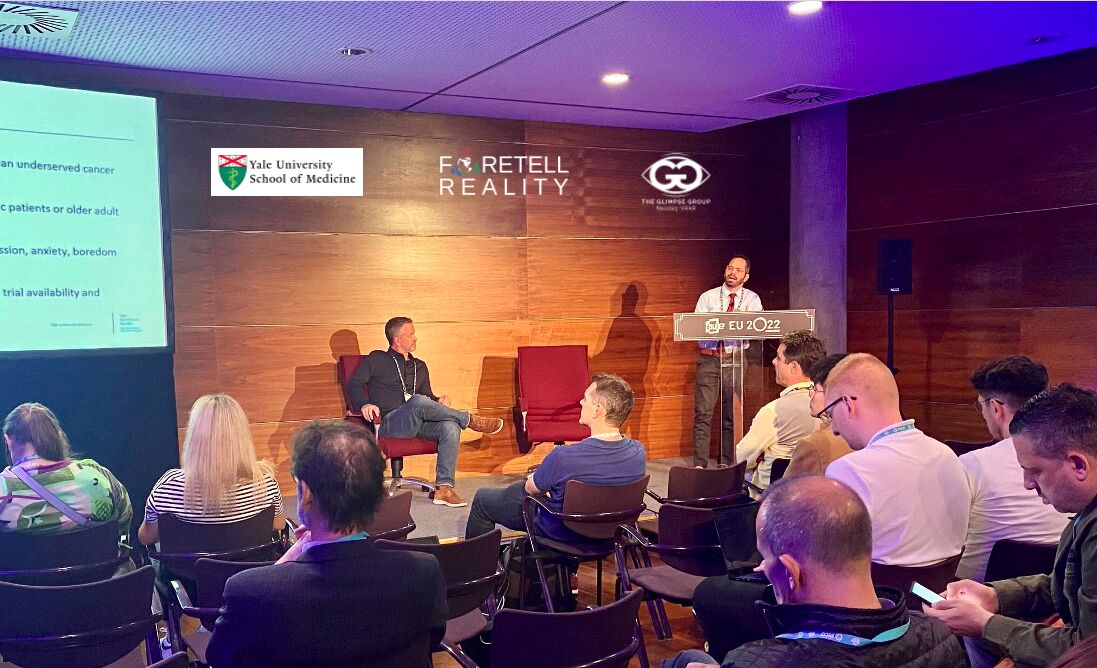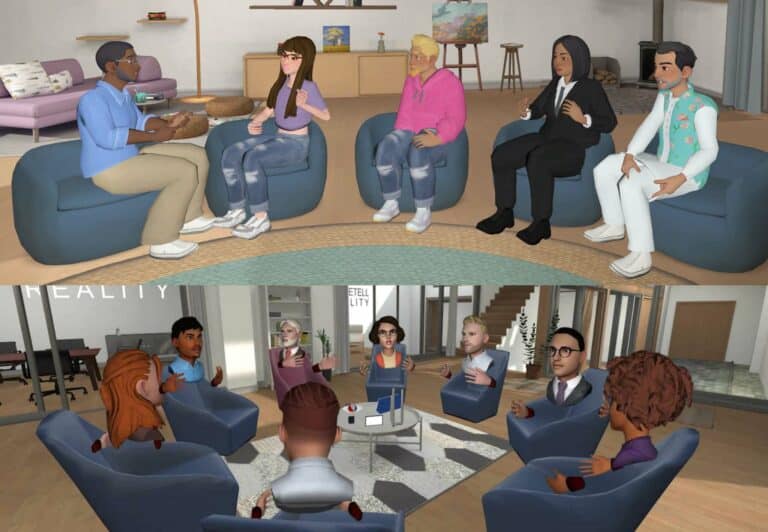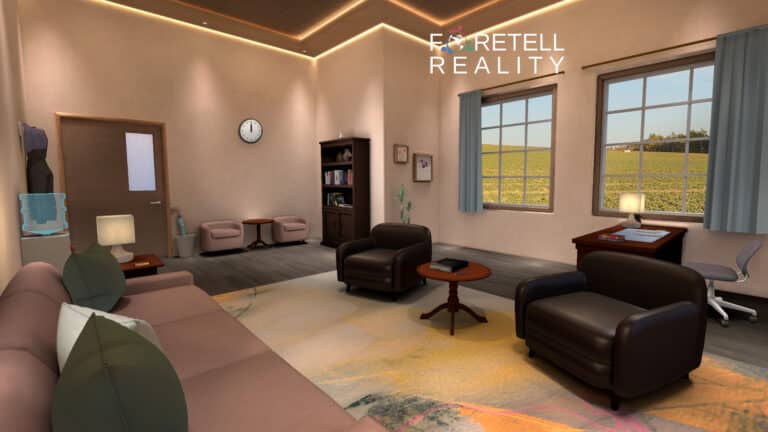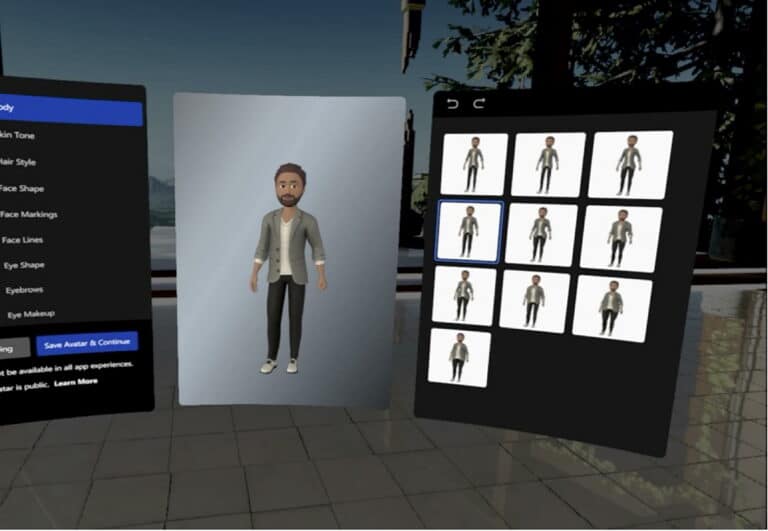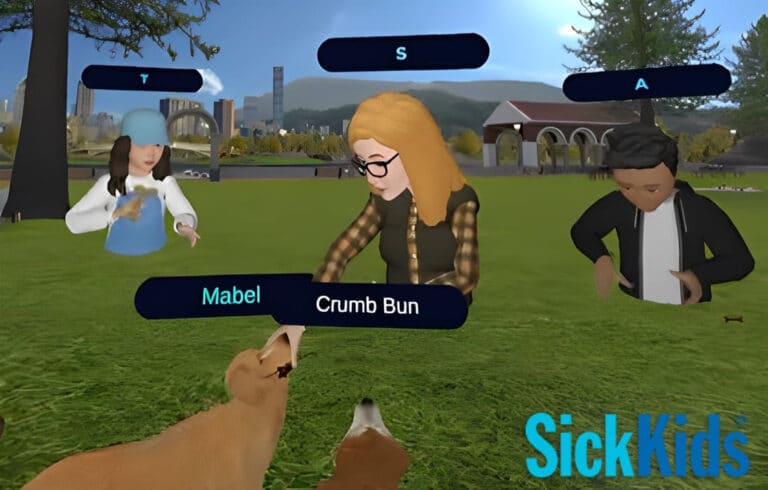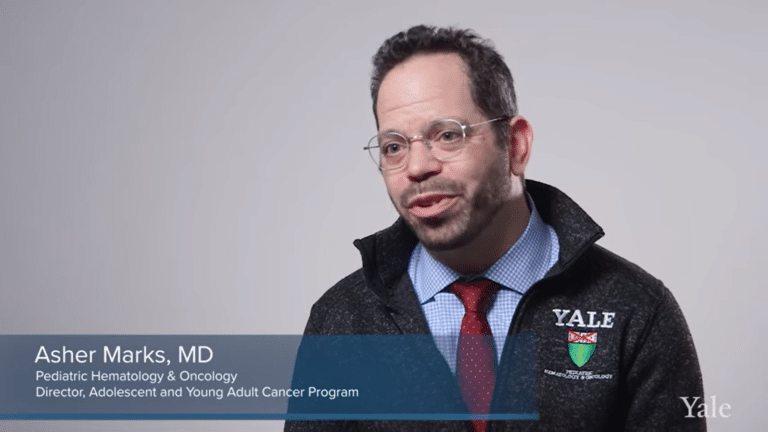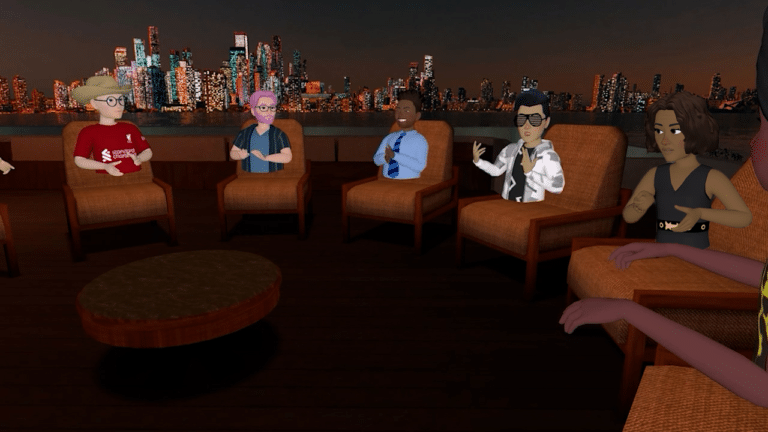Asher Marks, MD, Medical Director of Pediatric Neuro-Oncology at Yale University School of Medicine, recently spoke at AWE Europe about his collaboration with Foretell Reality. Featured alongside CMO of the Glimpse Group, James Watson, Dr. Marks explained the value of VR in clinical treatments for pediatric cancer patients, a support group therapy in VR, and why the Yale School of Medicine chose to partner with Foretell Reality.
“We needed a company that was going to work with us to customize the experience for what we felt our patients needed, and what our patients said they needed.” Yale Oncology Department chose Foretell because it is a peer-to-peer secured application, has great spatial audio, is hardware agnostic, and is customizable, Dr. Marks says. In his talk, Dr. Marks also highlights how VR has a lack of distraction, includes body language, a shared space, and opportunities for self-expression through avatars. His study participants followed his sentiment, saying “I preferred VR to Zoom due to the fact that it felt more immersive as though I was leaving my house to attend group”. “I would prefer a VR group to a Zoom group, as this feels more immersive” another participant agrees.
“Participation went from 0% to 73% when we put our patients into social VR support groups,” said Dr Marks, highlighting the significant impact the VR-based cancer support groups have had. “It was extremely helpful to be able to vent to people who actually get it”, adds another cancer participant. The support groups aimed to improve psychosocial care for cancer patients aged 18-25. But using the phone was their grandparents’ technology, and using Zoom was their parents’ technology, Dr. Marks says. VR, however, was something new and exciting. As an added benefit, the groups allowed patients with Leukemia to interact without having the increased risk of infection spread. Some patients joined support group sessions from the hospital, and some others were homebound. “I think I greatly benefitted from the group and it made me feel less isolated”, says a patient after participating in the program.
After over 9 months of detailed planning, Dr. Marks and his team ran Phase 1 and 2 pilot clinical trials with assessment tools such as resilience surveys to measure results. The average participant age was 19, and the most common diagnosis of participants was Acute Lymphocytic Leukemia. They had four patients per group, a professional social worker, and an invisible observer. The results were very encouraging: they found statistically significant improvements in resilience. “I was a little embarrassed to be myself, but this group provided me with the confidence to be myself.” adds one member.
Following this collaboration, The Glimpse Group is working to make the implementation, management, and measurement of XR technology in healthcare easy, and to promote more studies and partnerships. As XR becomes more mainstream, the cost of entry will become more affordable, Asher Marks adds. One of the major benefits of this study will be that it sets a precedent for other healthcare organizations, as mentioned in their Q&A.


